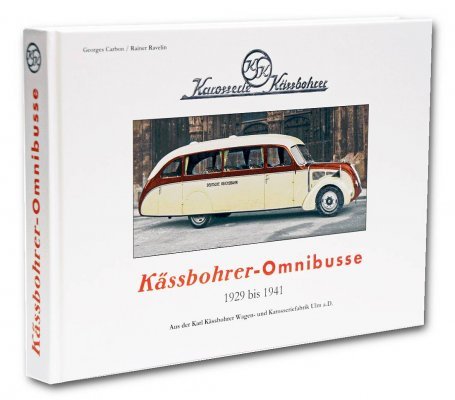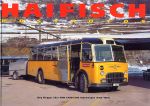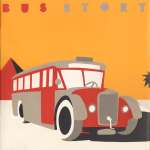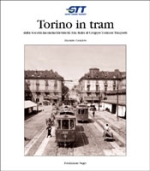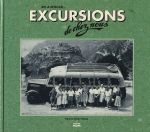KASSBOHRER - OMNIBUSSE 1929 - 1941
Towards the end of the 1920s, the long-established Kässbohrer company, based in Ulm, stopped building coaches and later also separated from the automobile sector. From then on, production was dedicated exclusively to bus bodies, truck superstructures and trailers.
This specialisation was a blessing as the company weathered the recession well and the foundation stone was laid for further economic growth.
Following the acquisition of the Neuer & Thieme coachbuilding factory in Ulm in 1928, bus production could be further expanded: this was the beginning of the company's successful specialisation in the production of more comfortable and advanced buses.
The first Kässbohrer panorama buses with sliding roofs and full glass top were developed and produced in 1929. This was the prototype for many pioneering bus models that justified the great reputation of Kässbohrer's tour bus superstructures.
In 1930, a bus that could be converted into a truck if necessary: the 6-tonne MAN chassis could be converted from a 30-seat bus to a truck without any problems.
At the beginning of the 1930s, super-light buses were a great success among transport companies. However, they had one disadvantage: they could only transport around 40 people. The situation changed considerably when someone came up with the idea of using semi-trailers to transport people.
The largest Kässbohrer bus built before the Second World War was a four-axle bus for 170 passengers.
In order to achieve the desired speed with the engines available at the time, which, by modern standards, had relatively limited power, the lightest and most aerodynamic vehicles possible were built. Therefore, in addition to passenger cars, aerodynamically shaped buses were also created.
Of course, Otto Kässbohrer also dedicated himself early on to the construction of aerodynamically shaped buses and around 1935 the first vehicles rolled out of the Ulm factory.
After the exterior shape and technology, now in the development phase special attention was also given to the passenger compartment and comfort. Height-adjustable cushions were integrated on upholstered club seats and the new sleeping seats could now be adjusted not only longitudinally, but also in height and laterally.
Wicker armchairs were also installed, while a refrigerator, onboard bar, toilet, folding tables, reading lights, wardrobe, and radio were not long in coming.
This book illustrates the various bus bodies produced by the Kässbohrer company between 1929 and 1941. Textual contributions by Otto Kässbohrer provide an overview of the various designs from this period.
Kässbohrer-Omnibusse 1929-1941 has 398 pages and 420 pictures.
Product specification
Additional information
Write a Review
Login or Register to write your review
You might also like
- Publisher: Verlag Verkehrs Fotoarchiv
- Language: German
- Binding : In hardback
- Publisher: Nuova Editrice Genovese
- Language: Italian
- Binding : In paperback
- Publisher: Rpr
- Language: English
- Binding : In hardback
- Publisher: Youcanprint
- Language: Italian
- Binding : In paperback
- Publisher: Crowood
- Language: English
- Binding : In hardback
- Publisher: Fondazione Negri
- Language: Italian
- Binding : In hardback
- Publisher: Mdm
- Language: French
- Binding : In hardback




